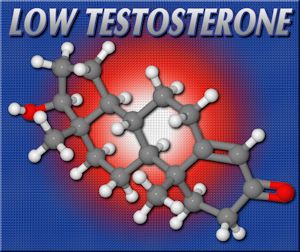Introduction
The health of the penis is not only a matter of physical well-being but also has significant implications for mental health. In the United States, where societal pressures and expectations around masculinity and sexual performance are high, understanding the connection between penile health and mental well-being is crucial. This article delves into the medical perspective on how penile health impacts mental health among American males, emphasizing the importance of addressing both aspects for overall health.
The Physiology of Penile Health
Penile health encompasses a range of factors, including erectile function, the absence of disease, and overall genital hygiene. Conditions such as erectile dysfunction (ED), Peyronie's disease, and sexually transmitted infections (STIs) can significantly affect the physical health of the penis. ED, for instance, is not only a physical condition but can also be a symptom of underlying health issues such as cardiovascular disease or diabetes, which require medical attention.
Psychological Impact of Penile Health Issues
The psychological impact of penile health issues can be profound. Men experiencing ED or other penile health problems often report feelings of inadequacy, anxiety, and depression. These feelings can stem from societal expectations of male sexual performance and the stigma associated with sexual health issues. In a culture that often equates masculinity with sexual prowess, any perceived failure can lead to significant mental health challenges.
The Role of Mental Health in Penile Function
Conversely, mental health plays a critical role in penile function. Stress, anxiety, and depression can contribute to or exacerbate ED. The brain's role in sexual arousal and performance is significant, and psychological factors can directly impact the physiological processes involved in achieving and maintaining an erection. Therefore, addressing mental health is essential in managing penile health issues.
Societal and Cultural Influences
In the United States, societal and cultural influences play a significant role in how men perceive and address penile health issues. The reluctance to seek medical help due to embarrassment or fear of judgment can delay treatment and worsen both physical and mental health outcomes. Education and open dialogue about penile health can help reduce stigma and encourage men to seek the care they need.
Medical Interventions and Therapies
Medical interventions for penile health issues range from medications like phosphodiesterase type 5 inhibitors for ED to surgical options for conditions like Peyronie's disease. Additionally, psychological therapies such as cognitive-behavioral therapy (CBT) can be effective in addressing the mental health aspects of penile health problems. A holistic approach that combines medical and psychological treatments is often the most effective way to improve both penile and mental health.
The Importance of Regular Check-ups
Regular medical check-ups are crucial for maintaining penile health and, by extension, mental well-being. Early detection and treatment of conditions like STIs or ED can prevent more severe health issues and reduce the psychological burden associated with these conditions. American males are encouraged to discuss any concerns about penile health with their healthcare providers openly.
Conclusion
The interplay between penile health and mental health is a critical consideration for American males. Addressing both physical and psychological aspects of penile health can lead to improved overall well-being. By fostering a culture of openness and reducing stigma, we can encourage men to seek the necessary medical and psychological support. Ultimately, understanding and addressing the link between penile health and mental health is essential for promoting a healthier, happier life for American males.
Contact Us Today For A Free Consultation

- Understanding the Psychological Toll of Penile Health Issues on American Men [Last Updated On: March 10th, 2025] [Originally Added On: March 10th, 2025]
- Managing Penile Skin Conditions: Symptoms, Treatments, and Psychological Support for American Males [Last Updated On: March 13th, 2025] [Originally Added On: March 13th, 2025]
- Genetics of Penile Development: Insights into Male Reproductive Health [Last Updated On: March 18th, 2025] [Originally Added On: March 18th, 2025]
- Penile Enlargement: Safety, Efficacy, and Informed Decision-Making in American Males [Last Updated On: March 18th, 2025] [Originally Added On: March 18th, 2025]
- Medications and Male Sexual Health: Impacts on Penile Function in American Males [Last Updated On: March 18th, 2025] [Originally Added On: March 18th, 2025]
- Penile Nerve Blocks: Enhancing Pain Management and Surgery for American Males [Last Updated On: March 19th, 2025] [Originally Added On: March 19th, 2025]
- Obesity's Impact on Penile Function: Physiological, Hormonal, and Psychological Insights [Last Updated On: March 20th, 2025] [Originally Added On: March 20th, 2025]
- Understanding Penile Trauma: Types, Emergency Care, and Long-term Management Strategies [Last Updated On: March 20th, 2025] [Originally Added On: March 20th, 2025]
- Penile MRI: Revolutionizing Diagnosis of Male Sexual Health Conditions [Last Updated On: March 20th, 2025] [Originally Added On: March 20th, 2025]
- Testosterone's Crucial Role in Penile Health and Function: A Comprehensive Overview [Last Updated On: March 21st, 2025] [Originally Added On: March 21st, 2025]
- Advancements in Penile Prostheses: Restoring Function and Enhancing Quality of Life [Last Updated On: March 21st, 2025] [Originally Added On: March 21st, 2025]
- Optimal Penile Hygiene Practices for American Males: A Comprehensive Guide [Last Updated On: March 21st, 2025] [Originally Added On: March 21st, 2025]
- Lifestyle Choices and Their Impact on Penile Health in American Males [Last Updated On: March 21st, 2025] [Originally Added On: March 21st, 2025]
- Penile Vascular Health: Understanding, Diagnosing, and Managing for American Males [Last Updated On: March 22nd, 2025] [Originally Added On: March 22nd, 2025]
- Penile Ulcers: Causes, Diagnosis, and Treatment for American Males [Last Updated On: March 22nd, 2025] [Originally Added On: March 22nd, 2025]
- Penile Reconstruction: Techniques, Outcomes, and Future in American Males [Last Updated On: March 22nd, 2025] [Originally Added On: March 22nd, 2025]
- Penile Biopsy: Diagnosing Urological Conditions in American Males [Last Updated On: March 23rd, 2025] [Originally Added On: March 23rd, 2025]
- Understanding Penile Numbness: Causes, Diagnosis, and Treatment Options for American Males [Last Updated On: March 23rd, 2025] [Originally Added On: March 23rd, 2025]
- Penile Skin Grafts: Indications, Procedures, and Outcomes for American Males [Last Updated On: March 24th, 2025] [Originally Added On: March 24th, 2025]
- Spinal Cord Injuries: Impact on Penile Function and Treatment Advances [Last Updated On: March 24th, 2025] [Originally Added On: March 24th, 2025]
- Penile Lymphatic System: Functions, Disorders, and Health Maintenance for American Males [Last Updated On: March 24th, 2025] [Originally Added On: March 24th, 2025]
- Understanding and Managing Penile Swelling: A Guide for American Males [Last Updated On: March 24th, 2025] [Originally Added On: March 24th, 2025]
- Penile Ultrasound: Diagnosing Sexual Dysfunction in American Males [Last Updated On: March 24th, 2025] [Originally Added On: March 24th, 2025]
- Penile Blood Tests: Diagnosing Systemic Health in Men [Last Updated On: March 25th, 2025] [Originally Added On: March 25th, 2025]
- Penile Sensory Neuropathy: Symptoms, Diagnosis, and Management Strategies in Penis Science [Last Updated On: March 25th, 2025] [Originally Added On: March 25th, 2025]
- Radiation Therapy's Impact on Penile Health: Effects and Management for American Males [Last Updated On: March 25th, 2025] [Originally Added On: March 25th, 2025]
- Understanding Penile Rashes: Types, Causes, Treatments, and Prevention Strategies [Last Updated On: March 25th, 2025] [Originally Added On: March 25th, 2025]
- Penile Arteries: Key to Erection Health and Cardiovascular Wellness in American Males [Last Updated On: March 25th, 2025] [Originally Added On: March 25th, 2025]
- Chronic Diseases and Penile Health: Impacts and Management for American Males [Last Updated On: March 25th, 2025] [Originally Added On: March 25th, 2025]
- Penile Girth's Impact on Sexual Satisfaction: Medical Insights and Enhancement Options [Last Updated On: March 25th, 2025] [Originally Added On: March 25th, 2025]
- Understanding Penile Discharge: Causes, Symptoms, and Treatment Options for American Males [Last Updated On: March 25th, 2025] [Originally Added On: March 25th, 2025]
- Understanding Penile Warts: Causes, Symptoms, and Treatment Options for American Males [Last Updated On: March 26th, 2025] [Originally Added On: March 26th, 2025]
- Understanding Penile Veins: Anatomy, Function, and Common Disorders in American Males [Last Updated On: March 26th, 2025] [Originally Added On: March 26th, 2025]
- Chemotherapy's Impact on Penile Health: Insights for American Males [Last Updated On: March 26th, 2025] [Originally Added On: March 26th, 2025]
- Understanding and Managing Penile Allergies: Symptoms, Diagnosis, and Strategies [Last Updated On: March 26th, 2025] [Originally Added On: March 26th, 2025]
- Understanding Penile Edema: Causes, Diagnosis, and Treatment for American Males [Last Updated On: March 26th, 2025] [Originally Added On: March 26th, 2025]
- Understanding and Managing Penile Pain: Causes, Diagnosis, and Relief for American Males [Last Updated On: March 26th, 2025] [Originally Added On: March 26th, 2025]
- Understanding Penile Lesions: Types, Causes, and Effective Treatments for American Males [Last Updated On: March 26th, 2025] [Originally Added On: March 26th, 2025]
- Hormonal Imbalances and Their Impact on Male Penile Health: A Comprehensive Guide [Last Updated On: March 26th, 2025] [Originally Added On: March 26th, 2025]
- Penile Prosthetics: A Comprehensive Guide for Treating Severe ED in American Males [Last Updated On: March 27th, 2025] [Originally Added On: March 27th, 2025]
- Penile Nerve Anatomy: Impact on Sexual Health and Function in American Men [Last Updated On: March 27th, 2025] [Originally Added On: March 27th, 2025]
- Dietary Impact on Penile Health: Key Nutrients and Eating Patterns for American Men [Last Updated On: March 27th, 2025] [Originally Added On: March 27th, 2025]
- Understanding Penile Discoloration: Causes, Symptoms, and Treatment Options for American Males [Last Updated On: March 27th, 2025] [Originally Added On: March 27th, 2025]
- Neurological Disorders and Penile Function: Impact and Management for American Males [Last Updated On: March 27th, 2025] [Originally Added On: March 27th, 2025]
- Managing Penile Itching: Causes, Symptoms, and Effective Treatments for American Men [Last Updated On: March 28th, 2025] [Originally Added On: March 28th, 2025]
- Penile Health: Impact on Physical and Psychological Well-being in American Males [Last Updated On: March 28th, 2025] [Originally Added On: March 28th, 2025]
- Understanding Penile Bleeding: Causes, Symptoms, and Emergency Care for American Males [Last Updated On: March 28th, 2025] [Originally Added On: March 28th, 2025]
- Penile Piercings: Health Risks, Types, and Medical Advice for American Males [Last Updated On: March 28th, 2025] [Originally Added On: March 28th, 2025]
- Penile Sensitivity: Impact on Male Sexual Health and Function [Last Updated On: March 29th, 2025] [Originally Added On: March 29th, 2025]
- Understanding Penile Lumps: Types, Causes, and Management for American Males [Last Updated On: March 29th, 2025] [Originally Added On: March 29th, 2025]
- Penile Health and Fertility: Insights and Management for American Males [Last Updated On: March 30th, 2025] [Originally Added On: March 30th, 2025]
- Penile Injuries: Impact on Sexual Health and Management Strategies for American Males [Last Updated On: March 30th, 2025] [Originally Added On: March 30th, 2025]
- Understanding Penile Sores: Causes, Symptoms, and Treatments for American Males [Last Updated On: March 30th, 2025] [Originally Added On: March 30th, 2025]
- Understanding and Treating Penile Redness in American Males: Causes, Symptoms, Solutions [Last Updated On: April 2nd, 2025] [Originally Added On: April 2nd, 2025]
- Penile Dermatitis: Symptoms, Causes, and Treatment Options for American Males [Last Updated On: April 3rd, 2025] [Originally Added On: April 3rd, 2025]
- Penile Health: Enhancing Sexual Wellness and Partner Satisfaction in American Males [Last Updated On: April 4th, 2025] [Originally Added On: April 4th, 2025]
- Causes, Diagnosis, and Management of Penile Burning in American Males [Last Updated On: April 5th, 2025] [Originally Added On: April 5th, 2025]
- Penile Health's Impact on Urinary Function: Insights and Care for American Males [Last Updated On: April 7th, 2025] [Originally Added On: April 7th, 2025]
- Managing Penile Dryness: Causes, Symptoms, and Effective Dermatological Treatments [Last Updated On: April 8th, 2025] [Originally Added On: April 8th, 2025]
- Penile Health and STI Prevention: A Comprehensive Guide for American Males [Last Updated On: April 8th, 2025] [Originally Added On: April 8th, 2025]
- Understanding Penile Blisters: Causes, Symptoms, and Effective Management Strategies [Last Updated On: April 9th, 2025] [Originally Added On: April 9th, 2025]
- Penile Health and Hormonal Balance: Insights for American Males [Last Updated On: April 11th, 2025] [Originally Added On: April 11th, 2025]
- Penile Health's Impact on Prostate Wellness: A Guide for American Males [Last Updated On: April 12th, 2025] [Originally Added On: April 12th, 2025]
- Understanding and Managing Penile Sensitivity Disorders in American Males [Last Updated On: April 12th, 2025] [Originally Added On: April 12th, 2025]
- Penile Health and Fertility: Insights and Strategies for American Males [Last Updated On: April 13th, 2025] [Originally Added On: April 13th, 2025]
- Understanding Penile Foreskin Health: Causes, Symptoms, and Medical Interventions [Last Updated On: April 13th, 2025] [Originally Added On: April 13th, 2025]
- Managing Penile Odor: Causes, Symptoms, and Effective Treatment Strategies for Men [Last Updated On: April 13th, 2025] [Originally Added On: April 13th, 2025]
- Penile Health as a Cardiovascular Indicator: Study Insights and Preventive Measures [Last Updated On: April 14th, 2025] [Originally Added On: April 14th, 2025]
- Penile Health and Sexual Function: Insights for American Males [Last Updated On: April 15th, 2025] [Originally Added On: April 15th, 2025]
- Penile Health and Immune System: A Vital Connection for American Males [Last Updated On: April 16th, 2025] [Originally Added On: April 16th, 2025]
- Exploring the Link Between Penile and Musculoskeletal Health in American Males [Last Updated On: April 17th, 2025] [Originally Added On: April 17th, 2025]
- Penile Health and Respiratory Wellness: Interconnected Systems in American Males [Last Updated On: April 18th, 2025] [Originally Added On: April 18th, 2025]
- Managing Penile Irritation: Causes, Symptoms, and Dermatological Treatments for American Males [Last Updated On: April 18th, 2025] [Originally Added On: April 18th, 2025]
- Aging and Penile Sensitivity: Impacts and Management for American Males [Last Updated On: April 18th, 2025] [Originally Added On: April 18th, 2025]
- Penile Sensitivity and Neurological Health: Insights for American Males [Last Updated On: April 18th, 2025] [Originally Added On: April 18th, 2025]
- Penile Health and Endocrine Disorders: Causes, Symptoms, and Management Strategies [Last Updated On: April 19th, 2025] [Originally Added On: April 19th, 2025]
- Kidney Function and Penile Health: Insights and Implications for American Males [Last Updated On: April 20th, 2025] [Originally Added On: April 20th, 2025]
- Penile Health Linked to Gastrointestinal Wellness: Insights for American Males [Last Updated On: April 20th, 2025] [Originally Added On: April 20th, 2025]
- Penile Health: Understanding Conditions and Advanced Treatments for American Males [Last Updated On: April 21st, 2025] [Originally Added On: April 21st, 2025]
- Exploring Penile Anatomy: Structure, Function, and Health for American Males [Last Updated On: April 21st, 2025] [Originally Added On: April 21st, 2025]
Word Count: 560





















